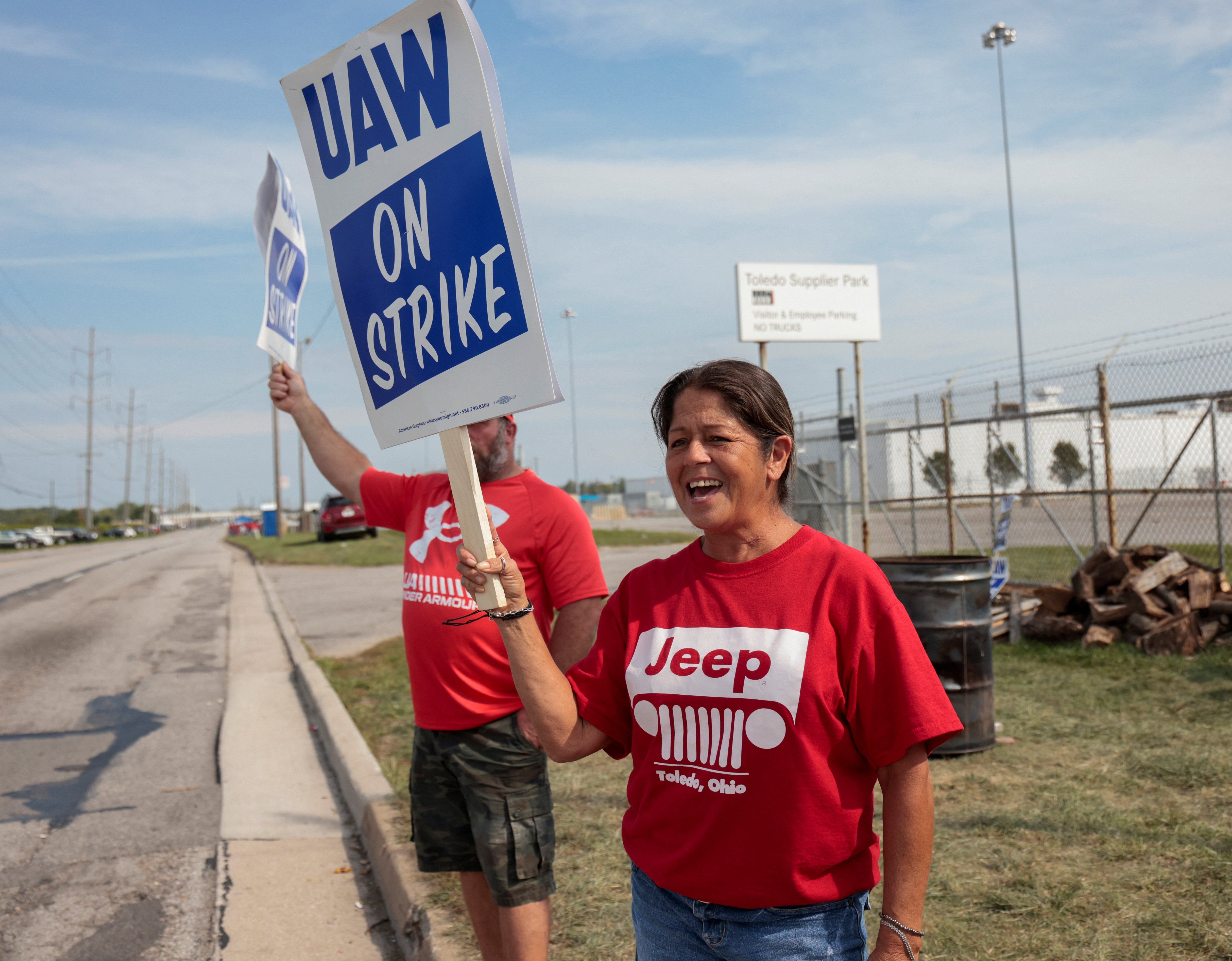Autoworkers’ strike highlights Biden’s union problem ahead of 2024 vote
Bad news for US President Joe Biden: as the United Auto Workers’ strike enters its fifth day, labor and climate priorities are colliding in a crucial election year.
While Biden calls himself the most “pro-union president in American history,” a wave of major private sector strikes is the last thing he wants as he heads into 2024. What’s more, in addition to their grievances with Big Auto, the UAW sees a threat in another of Biden’s priorities: his green agenda. Most plants that produce electric vehicles are not unionized, and many of the batteries they require are made in China. This is catnip for leading GOP candidate Donald Trump, who called on workers to “stand strong against Biden’s vicious attack on American labor,” as well as fellow Republicans who blame Biden’s Inflation Reduction Act and electrification push for workers’ troubles.
Democrats traditionally depend on a coalition of labor and progressive voters; any erosion of that support weakens their re-election prospects in what could be a tight race in 2024. Biden also needs to hold the state of Michigan, where the UAW is a strong player: in 2020, Biden just barely won the state’s 16 electoral votes.
A prolonged autoworkers’ strike would seriously damage the American economy, imperiling Biden’s re-election bid. And yet Union Joe has to walk a fine line. Last Friday he attempted to shore up his union bona fides, stating that “record corporate profits… should be shared by record contracts for the UAW.”
But that, in turn, only raised the ire of business interests. US Chamber of Commerce president Suzanne P. Clark accused Biden of “promoting unionization at all cost.” Biden can’t catch a break – and it’ll only get tougher as election day approaches.
